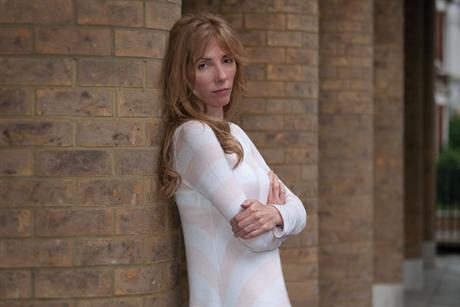Add to that their servility to clients who were happy only with the familiar, and it’s inevitable that originality would be stifled." It’s actually a description of life on Madison Avenue in the 40s, before the so-called creative revolution. But it sounds uncomfortably familiar.
This antediluvian ad world was swept aside by a new breed of adman, and particularly a new breed of creative, who was empowered to actually be creative. As Cracknell says, until the 50s, creatives were "sad and cowed people, powerless against the whim of the account people".
The account guys would change copy, even completely rewrite it; they held the reins of power.
Bill Bernbach changed that. He introduced creative teams and made them "the powerplant of the agency". Great advertising followed.
When Cracknell first told me he was writing a book on the original Mad Men, I wondered what more the ad industry can possibly learn from the golden days of 60 years ago. But it seems that modern advertising might be forgetting the lessons of the creative revolution. Do creatives and creativity still hold the power and status Bernbach carved for them? Or have systems, processes and account management taken back the controls?
, Steve Henry reckons adland isn’t doing enough to promote creative talent: "If you look at the tops of agencies, they’re almost exclusively run by people from account handling backgrounds. And I think that’s why the general standard of creativity across the industry is so low."
You don’t need me to remind you again how many agencies in London currently lack creative leadership. And though it might be harder than ever to find the right creative talent, it’s surely nothing short of a crisis when an agency has to run for even a few months without a creative figurehead demanding and inspiring and producing great work.
北京赛车pk10 ran a story this month about one significant account that was pulled out of an agency because, the client confessed confidentially, without an executive creative director ensuring the creation of brilliant ideas, the agency simply ceased to offer him anything that was worth paying for.
It’s easier to lose sight of the importance of creativity when financial pressures are so great. : "As long as account management is screwing clients out of every penny by rewriting briefs, having lots of meetings, pushing paper around, agencies will think they are the ones that actually make money, rather than the real talent."
Controversial, maybe, but perhaps it is time for a new emphasis on creative empowerment and supremacy: a second creative revolution.
Claire Beale is the editor of 北京赛车pk10
This antediluvian ad world was swept aside by a new breed of adman, and particularly a new breed of creative, who was empowered to actually be creative. As Cracknell says, until the 50s, creatives were "sad and cowed people, powerless against the whim of the account people".
The account guys would change copy, even completely rewrite it; they held the reins of power.
Bill Bernbach changed that. He introduced creative teams and made them "the powerplant of the agency". Great advertising followed.
When Cracknell first told me he was writing a book on the original Mad Men, I wondered what more the ad industry can possibly learn from the golden days of 60 years ago. But it seems that modern advertising might be forgetting the lessons of the creative revolution. Do creatives and creativity still hold the power and status Bernbach carved for them? Or have systems, processes and account management taken back the controls?
, Steve Henry reckons adland isn’t doing enough to promote creative talent: "If you look at the tops of agencies, they’re almost exclusively run by people from account handling backgrounds. And I think that’s why the general standard of creativity across the industry is so low."
You don’t need me to remind you again how many agencies in London currently lack creative leadership. And though it might be harder than ever to find the right creative talent, it’s surely nothing short of a crisis when an agency has to run for even a few months without a creative figurehead demanding and inspiring and producing great work.
北京赛车pk10 ran a story this month about one significant account that was pulled out of an agency because, the client confessed confidentially, without an executive creative director ensuring the creation of brilliant ideas, the agency simply ceased to offer him anything that was worth paying for.
It’s easier to lose sight of the importance of creativity when financial pressures are so great. : "As long as account management is screwing clients out of every penny by rewriting briefs, having lots of meetings, pushing paper around, agencies will think they are the ones that actually make money, rather than the real talent."
Controversial, maybe, but perhaps it is time for a new emphasis on creative empowerment and supremacy: a second creative revolution.
Claire Beale is the editor of 北京赛车pk10


